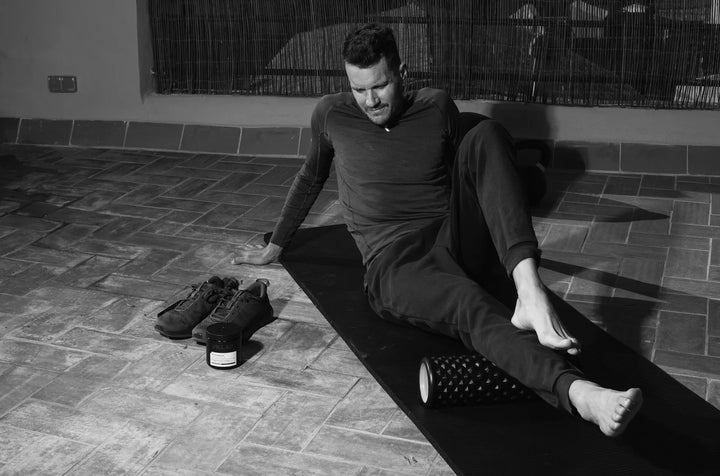For athletes, maximising training is all about…well, maximising training.
This means showing up ready to go at the sessions that count and then recovering like a boss to show up at the next one that counts.
To have any chance of doing that you have to nail your nutrition and sleep.
B vitamins and magnesium also have a support role in that journey, where all the little things really do count.
So, what makes B vitamins and magnesium work so well during an athlete's day?
B vitamins are critical for energy production (amongst other functions), while magnesium is known for recovery – muscle relaxation as well as promoting quality sleep.
By ‘bookending’ your training day consistently with these, coupled with smart programming, you will support your ability to train and recover consistently too.
Pros like Grace Thek know the importance of integrating nutrition support to maximise training adaptations.
For Grace, a typical training day might see a hard 2-hour morning bike with TT efforts, followed by a sharp swim set, and then a recovery run in the afternoon.
Grace’s experience in utilising vitamin B and magnesium at either end of the day has been pretty typical of many athletes – the benefits are most noticeable when she runs out – providing incentive to maintain that consistent daily intake.
“I put my body through a lot on a daily basis and find it essential to supplement key micronutrients to ensure I can perform my best in training and racing.” Grace said.
“Since taking the magnesium powder – my daily "maggie" as I call it – I have noticed a difference in my body's ability to recover from a hard session or race.
As I take it nightly, I find that my legs are less restless in bed and therefore helps me get to sleep easily. Sleep is crucial for recovery and to have a product that allows me to sleep better is very valuable.”
When is best to take B vitamins:
In the morning. Seeing as B vitamins help with energy production, the first meal of the day is a good time to take these. They can also be taken on an empty stomach.
When is best to take magnesium:
In the evening, ideally 30 minutes before bed. For best absorption, avoid taking with high calcium foods or zinc supps (these can be taken in the morning if needed).
Digging into the details:
Aside from energy production and specifically helping break down the food we eat into energy – where the B’s thiamine, riboflavin and B6 take a leading role – B vitamins are involved in many other essential functions.
B12 and folate for example are essential in forming red blood cells, as well as new cell formation, including repair of damaged muscle cells. They are found in wholegrains, nuts, meats, eggs and dairy.
Meat-free athletes need to pay particular attention to their B vitamins, as well as athletes (and that’s most of us on busy days) who rely on convenient sports foods instead of whole foods.
Put really simply – the more energy you need (i.e the harder or more you want to train), the more vitamin Bs you need. So for many athletes, supplements are a really smart choice, especially during hard training blocks.
Do I really need them if my pee is yellow?
Riboflavin is the B vitamin that can make your pee go yellow. While that might mean an excess of that particular B vitamin, it doesn’t mean you need to stop taking the supplement as you may still need to top up the other Bs.
Can’t I just eat food for energy?
Of course you need to eat sufficiently and at the appropriate times to be fuelled for training (and life), and to be clear no amount of vitamins will make up for a lack of actual real and proper food. But, without adequate stores of B vitamins, your body won’t efficiently break down that fuel for you to tap into.
Magnesium also has many vital roles including muscle contraction and relaxation, energy production, nerve function, cardiac activity, blood pressure regulation, hormonal interactions, immunity, bone health and the synthesis of proteins, fats and nucleic acids.
As with the B vitamins, athlete requirements for magnesium may rise with training volume, given its requirement in the process of ATP energy production.


0 comments